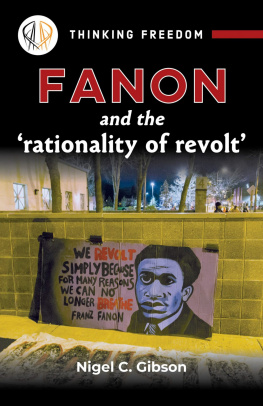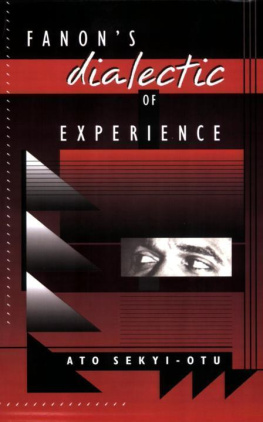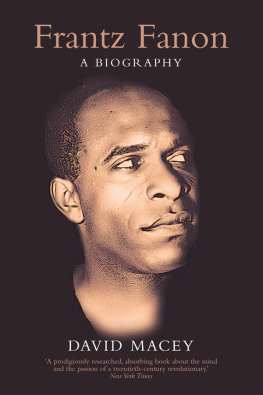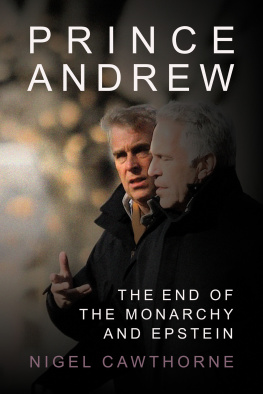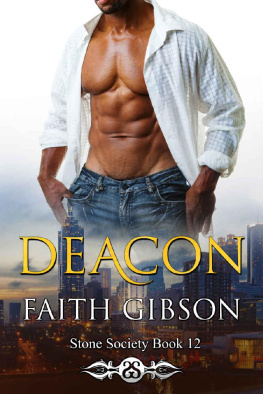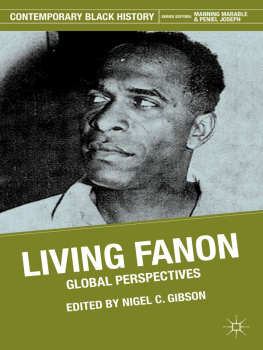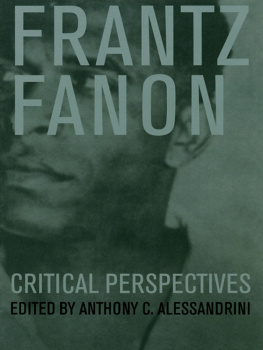Nigel C Gibson - Fanon and the Rationality of Revolt
Here you can read online Nigel C Gibson - Fanon and the Rationality of Revolt full text of the book (entire story) in english for free. Download pdf and epub, get meaning, cover and reviews about this ebook. year: 2020, publisher: Daraja Press, genre: Politics. Description of the work, (preface) as well as reviews are available. Best literature library LitArk.com created for fans of good reading and offers a wide selection of genres:
Romance novel
Science fiction
Adventure
Detective
Science
History
Home and family
Prose
Art
Politics
Computer
Non-fiction
Religion
Business
Children
Humor
Choose a favorite category and find really read worthwhile books. Enjoy immersion in the world of imagination, feel the emotions of the characters or learn something new for yourself, make an fascinating discovery.
- Book:Fanon and the Rationality of Revolt
- Author:
- Publisher:Daraja Press
- Genre:
- Year:2020
- Rating:5 / 5
- Favourites:Add to favourites
- Your mark:
- 100
- 1
- 2
- 3
- 4
- 5
Fanon and the Rationality of Revolt: summary, description and annotation
We offer to read an annotation, description, summary or preface (depends on what the author of the book "Fanon and the Rationality of Revolt" wrote himself). If you haven't found the necessary information about the book — write in the comments, we will try to find it.
Fanon and the Rationality of Revolt — read online for free the complete book (whole text) full work
Below is the text of the book, divided by pages. System saving the place of the last page read, allows you to conveniently read the book "Fanon and the Rationality of Revolt" online for free, without having to search again every time where you left off. Put a bookmark, and you can go to the page where you finished reading at any time.
Font size:
Interval:
Bookmark:

This work is licensed under a Creative Commons Attribution-NonCommercial 4.0 International License.
Cover photo: Tony Webster.tony@tonywebster.com. We revolt simply because for many reasons we can no longer breathe..-Franz Fanon..Banner outside the Minneapolis Police Department fourth precinct following the officer-involved shooting of Jamar Clark on November 15, 2015.
ISBN 9781988832777 (softcover) | ISBN 9781988832784 (EPUB)
- Some of the material in this pamphlet first appeared in the South African publication New Frame (https://www.newframe.com/combat-breathing-the-spirit-of-rebellion-in-the-usa/and https://www.newframe.com/fanon-and-the-rationality-of-revolt/).
Font size:
Interval:
Bookmark:
Similar books «Fanon and the Rationality of Revolt»
Look at similar books to Fanon and the Rationality of Revolt. We have selected literature similar in name and meaning in the hope of providing readers with more options to find new, interesting, not yet read works.
Discussion, reviews of the book Fanon and the Rationality of Revolt and just readers' own opinions. Leave your comments, write what you think about the work, its meaning or the main characters. Specify what exactly you liked and what you didn't like, and why you think so.

